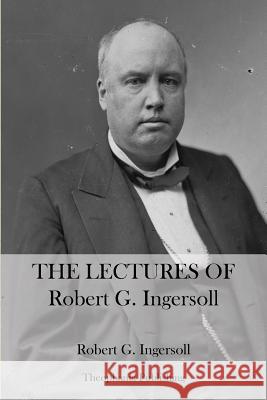The Lectures Of Robert G. Ingersoll » książka
The Lectures Of Robert G. Ingersoll
ISBN-13: 9781470086244 / Angielski / Miękka / 2012 / 638 str.
Thank you for checking out this book by Theophania Publishing. We appreciate your business and look forward to serving you soon. We have thousands of titles available, and we invite you to search for us by name, contact us via our website, or download our most recent catalogues. Though for many years the most noted of American infidels, Colonel Ingersoll was born and reared in a devoutly Christian household. His father, John Ingersoll, was a Congregationalist minister and a man of mark in his time, a deep thinker, a logical and eloquent speaker, broad minded and generously tolerant of the views of others. The popular impression which credits Ingersoll's infidelity in the main to his father's severe orthodoxy and the austere and gloomy surroundings in which his boyhood was spent is wholly wrong. On the contrary the elder Ingersoll's liberal views were a source of constant trouble between him and his narrow-minded parishioners. They caused him to frequently change his charges, and several times made him the defendant in church trials. His ministerial career was, in fact, substantially brought to a close by a church trial which occurred while he was pastor of the Congregational Church at Madison, Ohio, and at which his third wife appeared as prosecutor. Upon this occasion he was charged with prevarication and unministerial conduct. The evidence adduced-the trial is one of the abiding traditions of the dull little town of Madison-was of the most trivial and ridiculous character, but the committee which heard it decided that though he had done "nothing inconsistent with his Christian character," he was "inconsistent with his ministerial character," and forbade him to preach in the future. Elder John went before the higher church authorities and was permitted to continue his clerical labors. However, he soon removed to Wisconsin, going from there to Illinois, where he died. The Madison trial occurred when young Robert was nine years old, and it was the unjust and bigoted treatment his father received which made him the enemy, first of Calvinism, and later of Christianity in its other forms.
Zawartość książki może nie spełniać oczekiwań – reklamacje nie obejmują treści, która mogła nie być redakcyjnie ani merytorycznie opracowana.











